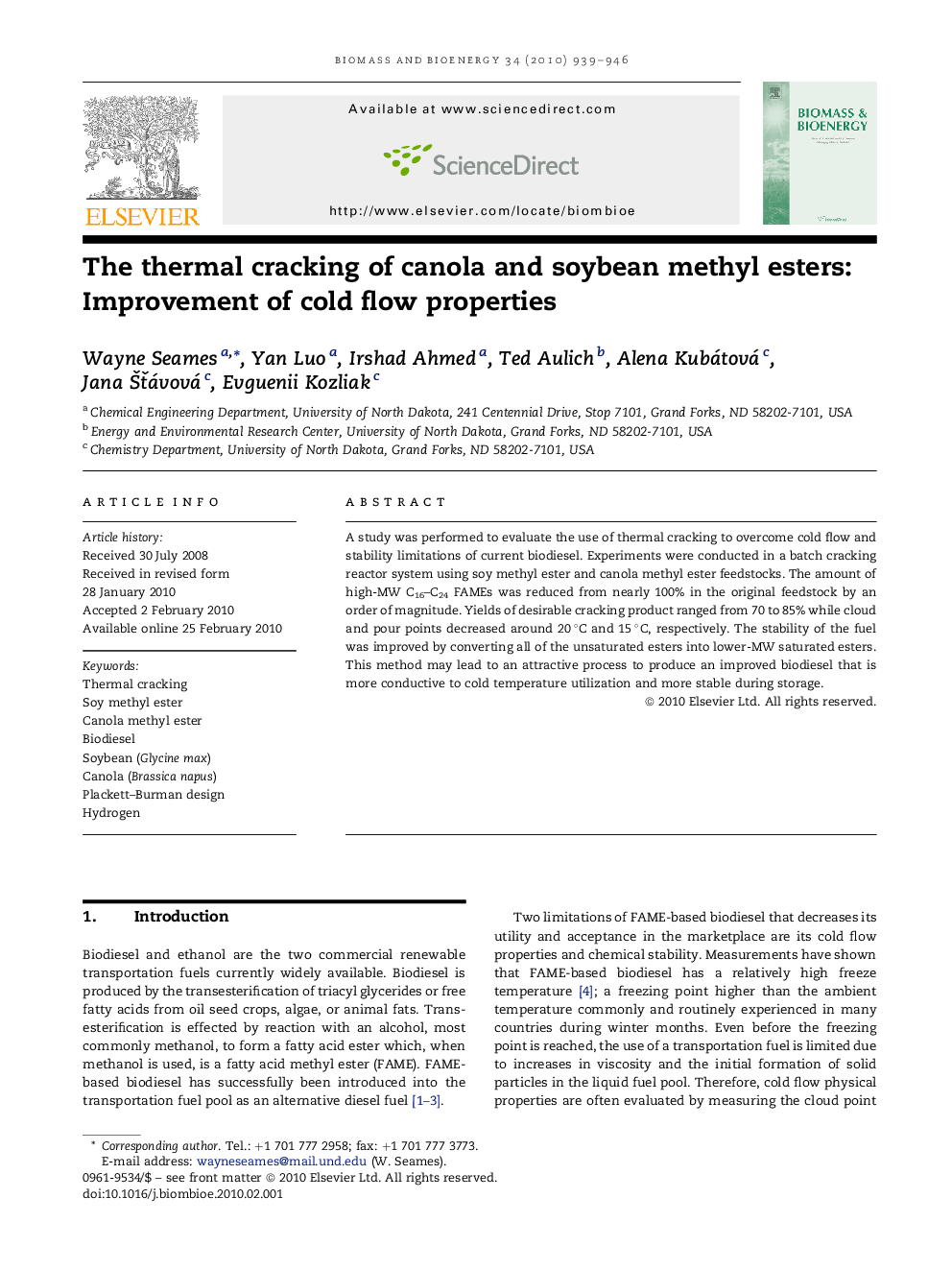| Article ID | Journal | Published Year | Pages | File Type |
|---|---|---|---|---|
| 678252 | Biomass and Bioenergy | 2010 | 8 Pages |
Abstract
A study was performed to evaluate the use of thermal cracking to overcome cold flow and stability limitations of current biodiesel. Experiments were conducted in a batch cracking reactor system using soy methyl ester and canola methyl ester feedstocks. The amount of high-MW C16-C24 FAMEs was reduced from nearly 100% in the original feedstock by an order of magnitude. Yields of desirable cracking product ranged from 70 to 85% while cloud and pour points decreased around 20 °C and 15 °C, respectively. The stability of the fuel was improved by converting all of the unsaturated esters into lower-MW saturated esters. This method may lead to an attractive process to produce an improved biodiesel that is more conductive to cold temperature utilization and more stable during storage.
Related Topics
Physical Sciences and Engineering
Chemical Engineering
Process Chemistry and Technology
Authors
Wayne Seames, Yan Luo, Irshad Ahmed, Ted Aulich, Alena Kubátová, Jana Å t'ávová, Evguenii Kozliak,
